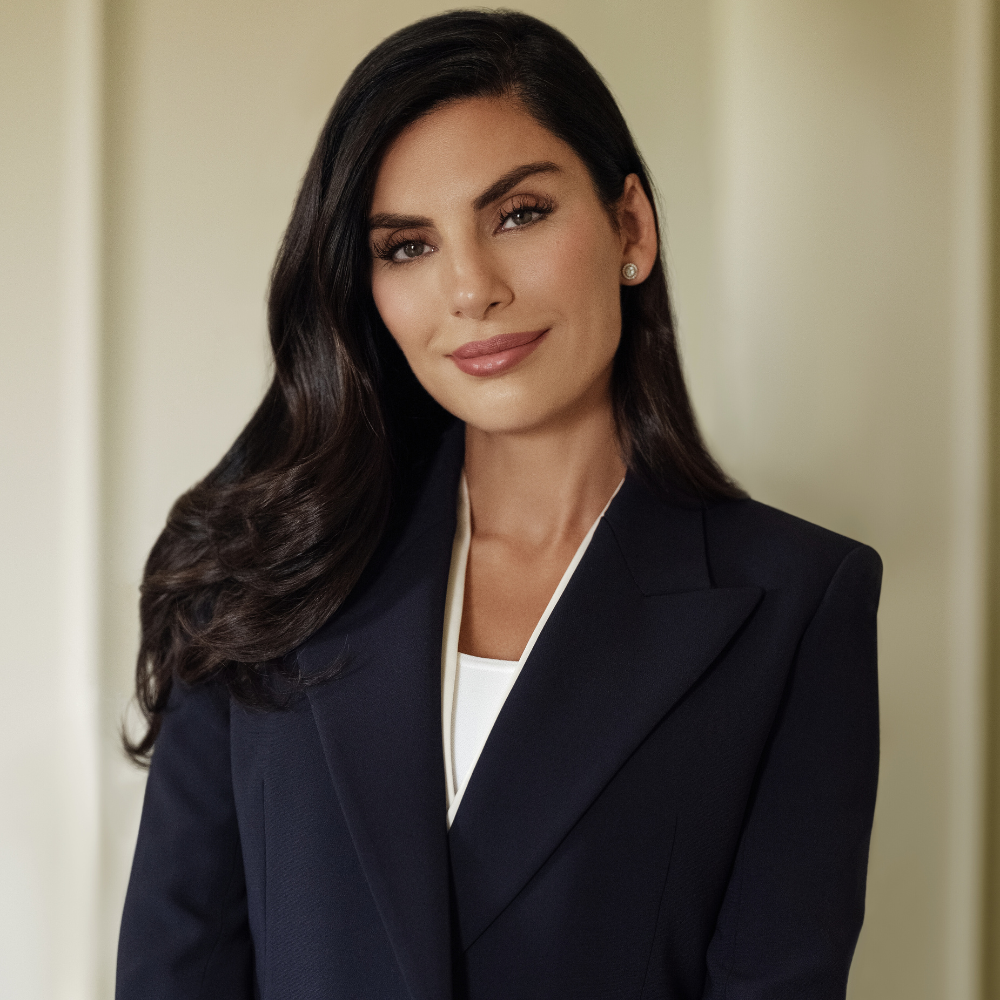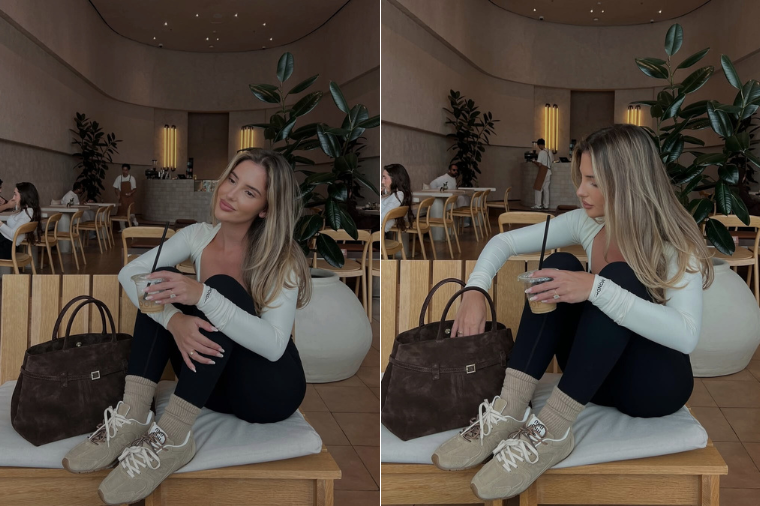How Dr. Saliha Afridi, Founder and Clinical Pyschologist at LightHouse Arabia, focuses on making a positive impact on the mental health of her community.
Talk us through your background?
I am a clinical psychologist and the founder of the LightHouse Arabia which is a community mental health center in Dubai since 2011. Over the past decade, my focus has notably shifted towards adult development and navigating the personal and processional transitions of midlife. I specialised in workplace and executive mental health, and also deep-seated expertise in parenting strategies and dynamics. My transition from the US to the UAE over 15 years ago marked the beginning of a dedicated effort to significantly enhance the mental health landscape of the region. In 2011, I founded The LightHouse Arabia, and under my leadership, it has evolved into one of the most influential mental health centers in the UAE and the region. Since its inception, I, alongside my dedicated team, has devoted thousands of volunteer hours to community education, focusing on the cultivation of mental health and wellness best practices.
Can optimism influence physical health, and if so, how is it connected to mental well-being?
Absolutely. Our mind and body are connected. Our thoughts can even impact something as biological as our gut microbiome, which is deeply connected to our mental health. Research has consistently shown that optimism can lower stress levels, decrease the cortisol levels in your body, and thus, reduce inflammation in the body. With a reduction of cortisol and inflammation you are impacting nearly every organ and system in the body such as reducing the risk of cardiovascular diseases, strengthening the immune system, which can even lead to increased longevity. A positive mental outlook also encourages healthier habits, such as exercise, better nutrition, and improved sleep, all of which impact physical health.
What role does therapy or professional support play in helping someone develop optimism?
Working with a psychologist can be very helpful to develop optimism for a few reasons. Sometimes we don’t even know we are being negative and having our thoughts and feelings reflected back to us can make us more aware of how deep the beliefs that fuel the negativity might be. Learning skills such as techniques from cognitive behavioral therapy which makes you aware of your mental models, cognitive distortions as well as teach you skills of reframing, thought journaling, and thought stopping will help you challenge your negative thoughts and develop healthier more balanced ways of approaching life.
Therapy also provides tools to process traumas and other difficult life experiences, which can help heal parts of you that might be holding on to a negative outlook as a way of surviving. By working through these experiences, therapy allows you to release old patterns of thinking and coping that may no longer serve you. It helps you identify the origins of these beliefs, reframe your perspective, and build healthier, more adaptive ways of approaching life’s challenges.
Can social connections and community engagement enhance a strong mindset?
Research shows that there is a significant relationship between loneliness and pessimism, with loneliness often leading to a more negative outlook on life. A study involving 260 undergraduate students found that higher levels of loneliness were associated with increased pessimism and decreased optimism. Social connections help us feel more well resourced and that helps us feel stronger. Social connections help us feel more well-resourced, both emotionally and mentally, which in turn strengthens our ability to cope with challenges. When we feel connected, supported, and understood, we are reminded that we don’t have to face life’s difficulties alone. This sense of belonging and shared experience provides a buffer against stress and reduces feelings of isolation. Simply put, relationships serve as a source of strength, helping us feel grounded, supported, and better equipped to navigate life.
With the fast-paced culture, are there specific tools or techniques to manage stress, anxiety, or burnout effectively?
One of the most important things we can do to manage stress, anxiety, and burnout is to remember that we are human. There is no quick fix. We live in a world that is fast-paced and machine-like, but we are not machines. Our human bodies have evolved over thousands of years to thrive through simple, natural rhythms: moving, eating, sleeping, connecting. Our internal clock was once set by the sun, not a screen, and we existed in constant relationship with nature and our tribe/community. When you feel overwhelmed, burnt out, or unwell, instead of looking for quick fixes, pause and ask yourself:
How can I return to my natural rhythms? Are you getting enough sleep to restore your body and mind? moving in ways that release tension and energy? Are you eating nourishing foods that fuel and heal? Are you connecting with others, or do you feel isolated? When was the last time you stepped outside, grounded yourself in nature, and slowed your pace? Our modern world may demand speed, but our bodies and souls still crave what we have always needed: rest, movement, nourishment, and connection. By returning to these essentials, we honour our humanity and reclaim balance, calm, and well-being.
How can people set boundaries to protect their mental health without feeling guilty?
It would be important for people to understand why they feel guilty when they set boundaries. It is too easy to say “just say no” or “have good boundaries” but there is a lot of cultural conditioning, especially for women, who are taught to say yes, extend themselves, sacrifice for the sake of relationship and be complaint. Saying no could go against everything you have been taught about what it means to be good and kind and can feel like a betrayal of this identity. For people who value relationships, this can trigger deep-seated fears of abandonment or not being loved. So before you say no, I would encourage people to reflect on: What does saying no mean to me? Identify the fears or beliefs that surface when you set boundaries.
Also, explore where these beliefs come from – family messages, cultural norms, or personal experiences. If you are just saying yes without consideration for yourself then you will eventually burnout or engage in unhealthy relational patterns. Boundaries are a form of self-respect and self-consideration. While, there will also be times where you will sacrifice your own needs to show up for a relationship and if that is done consciously you won’t be resentful than if you are doing it unconsciously.

How can technology, like apps or virtual therapy, help improve mental health access?
I am personally a big fan of in-person, nervous system to nervous system interaction in therapy, and using virtual apps and virtual therapy as an adjunct for inperson therapy. I think apps and virtual therapy are a great way to increase accessibility and the apps are a great way to provide out of the therapy hour support. Virtual therapy has made support more accessible for individuals who face barriers such as distance, stigma, or time constraints.
Are there specific habits or routines that foster a positive mental attitude?
I think it is really important to differentiate between positivity and realistic optimism. Realistic optimism is a well-researched concept in psychology and refers to the ability to maintain a hopeful and positive outlook while being grounded in reality. It is often seen as a middle ground between blind optimism (unrealistic positivity that ignores challenges) and pessimism (a focus on negative outcomes).I think positivity when disconnected from reality can be naïve and detrimental to people’s well-being. But doing a proper assessment of the situation, seeing the pros and cons, being aware of the challenges and obstacles paired with proactive planning in how you will address it is important. Realistic optimists acknowledge problems but believe in their ability to overcome them through action, effort, and adaptability. There are some specific habits one can engage in to foster the PMA: Do a gratitude journal and let your heart fill with gratitude. Gratitude is a great way to fill your cup and the best part is that you don’t have to do anything other than name the things you appreciate about your life.
Memorise ‘wow’ moments throughout the day. There are many times a day where we experience something that is ‘wow’ or comforting or soothing. Take 20 seconds and memorise that moment.The thing with our minds is that its teflon for positive moments and velcro for negative moments – that’s because remembering the negative things is linked to our survival. So we really have to go out of our way to remember the wow moments throughout the day. For example, if the weather is amazing, spend 20 seconds, taking in five deep breaths to remember how good it feels to have such amazing weather. Don’t compromise on the non-negotiables when it comes to caring for your body – sleep, nourishment, and movement. It won’t matter how positive you are if you are under rested, undernourished, and not getting sufficient movement it will take a whole lot more energy and willpower to stay positive.
This is The Optimism Issue – how do you stay positive during testing times?
For me, faith is central to how I navigate life and faith in inherently optimistic- faith that everything that is happening to me is for me. I do not deny the feelings that come with difficult experiences – the grief or sadness, overwhelm – but all the while there is something inside of me that holds me up and says to trust in the greater process, even when this moment or the path ahead is difficult. This perspective allows me to face life’s uncertainties with openness, knowing that every moment is part of a larger journey toward becoming more of me, more whole, and more true to myself. Faith doesn’t remove the discomfort, but it reminds me that the discomfort is temporary and transformative, like a refining fire. It’s a way of anchoring myself to the belief that when difficulties arise something more is being asked of me.
– For more on luxury lifestyle, news, fashion and beauty follow Emirates Woman on Facebook and Instagram
January’s – The Optimsm Issue – Download Now
Images: Supplied & Feature Image: Instagram @tialineker












